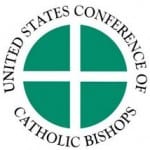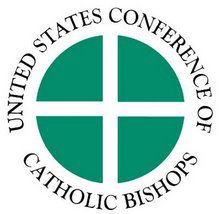 Catholic scholars, U.S. bishops and Catholic leaders from around the Washington region will discuss the moral and religious implications of global climate change and environmental justice at a November 8-10 symposium at The Catholic University of America (CUA). “A Catholic Consultation on Environmental Justice and Climate Change: Assessing Pope Benedict XVI’s Ecological Vision for the Catholic Church in the United States” is sponsored by the U.S. Conference of Catholic Bishops (USCCB), CUA’s Institute for Policy Research and Catholic Studies, and the Catholic Coalition on Climate Change.
Catholic scholars, U.S. bishops and Catholic leaders from around the Washington region will discuss the moral and religious implications of global climate change and environmental justice at a November 8-10 symposium at The Catholic University of America (CUA). “A Catholic Consultation on Environmental Justice and Climate Change: Assessing Pope Benedict XVI’s Ecological Vision for the Catholic Church in the United States” is sponsored by the U.S. Conference of Catholic Bishops (USCCB), CUA’s Institute for Policy Research and Catholic Studies, and the Catholic Coalition on Climate Change.
The Catholic Coalition on Climate Change is a consortium of national Catholic organizations including the
- USCCB
- Catholic Charities USA
- Catholic Relief Services
- National Catholic Education Association
- Franciscan Action Network,
- Association of Catholic Colleges and Universities
- National Catholic Rural Life Conference
- and others.
“We have seen the destructive impact of climate change and environmental degradation both around the world and at home,” said Bishop Stephen E. Blaire of Stockton, California, chairman of the USCCB Committee on Domestic Justice and Human Development. “These impacts often multiply the hardship experienced by the most vulnerable people in the world.Pope Benedict has consistently drawn attention to these issues and urges all to take moral responsibility to reduce our environmental impact and our carbon footprint. This symposium is an important step in guiding our Catholic response to these challenges.”
Bishop Bernard Unabali from Papau New Guinea will deliver the symposium’s opening address on Thursday evening. Bishop Unabali assisted with the relocation of many residents of the Carteret Islands to his diocese. These residents, among the world’s first “climate refugees,” were forced to abandon their islands due to the impacts of climate change.
Other bishops in attendance will include Bishop Jaime Soto of Sacramento, California; Bishop Donald Kettler of Fairbanks, Alaska; Bishop Frank Dewane of Venice, Florida; Bishop John Ricard, retired bishop of Pensacola-Tallahassee, Florida; and Bishop William Skylstad, retired bishop of Spokane, Washington.
Scholars presenting on the moral and theological dimensions of ecology and climate change will come from the following colleges and universities: CUA, Fordham, St. Louis, Graduate Theological Union, Notre Dame, Duke, Marquette, Xavier, Duquesne, Santa Clara, Mount St. Mary’s and Georgetown.
http://www.huffingtonpost.com/2012/10/30/hurricane-sandy-cuomo-bloomberg-climate-change_n_2043982.html
A day after New York City experienced its worst storm surges in recorded history, Governor Andrew Cuomo and Mayor Michael Bloomberg said the city may need to respond to climate change with steps like storm barriers. Such protections would be extremely costly, but climate change experts said Hurricane Sandy provided a first glimpse of the challenges all coastal areas will face as sea levels rise and extreme weather events become more frequent.
Cuomo said on Tuesday that he told President Barack Obama it seemed like “we have a 100-year flood every two years now.”
“These are extreme weather patterns. The frequency has been increasing,” he said.
Of protections like levees in Lower Manhattan, Cuomo said, “It is something we’re going to have to start thinking about … The construction of this city did not anticipate these kinds of situations. We are only a few feet above sea level.”
“I don’t know how practical it is to put gates on PATH tubes and subway tunnels,” Bloomberg said in a separate press conference. “What is clear is that the storms we’ve experienced in the last year or so around this country and around the world are much more severe than before. Whether that’s global warming or what, I don’t know, but we’ll have to address those issues.”
Although levees or other storm surge barriers might sound like fantasy to some, there are proposals on the table for introducing barriers across New York’s harbor or in the East River. Implementing them would cost at least billions of dollars — but infrastructure experts said the time to prepare for climate change is now, not after disasters.
Klaus Jacob, a climate expert at Columbia University, warned months ago that a major flood could result in $58 billion in economic damages from a large storm surge. An event on something like that scale appears to have come to pass.
As the country found out with Hurricane Katrina, Jacob said, a little investment now can go a long way when the worst occurs.
“The price tag for [Katrina] was $100 billion,” Jacob told The Huffington Post. If more money had been spent on levees and other flood defenses, “for $10 billion you could have prevented the problem.”
Such storm surges are an issue of “nationwide consequence because it affects all the large cities on the coast,” said Jacob. From New York to Houston, almost every major metropolis is threatened by extreme weather.
Because of climate change, he said, “even on a clear day a hundred years from now, the water will be where it is today under storm surge conditions. Which means, any storm surge from a normal any-old-storm could flood the subway unless we do something.”
Even setting aside the issue of climate change, engineers say the country is doing far too little to strengthen its water infrastructure. The American Society of Civil Engineers has suggested that by 2020 the U.S. will face an $84.4 billion gap between what it is spending and what it should be spending on pipes, storm sewers and water treatment facilities. When storms come, underinvestment can lead to flooded streets or toxic discharges.
Robert Puentes, a senior fellow with the Brookings Institution’s Metropolitan Policy Program, said he doubted the subways would have been better prepared if the Metropolitan Transportation Authority were more fully funded, because the need for simple day-to-day repairs is so great that the expense for more unusual events like hurricanes would still go unmet.
But he and others agree that the country is not doing enough to prepare its infrastructure for events like Sandy.
“Since we keep seeing large scale storms — the derecho this summer, Irene, Isabel — it may be wise for transit and infrastructure planners and officials to think of these as part of a new normal,” said Puentes.
Comments like Cuomo and Bloomberg’s mark a rare departure from U.S. leaders’ usual silence on climate change. The fingerprints of global warming are all over storms like Sandy, the largest ever recorded in the Atlantic. Nevertheless, neither Mitt Romney nor Obama have been eager to talk about how they would address climate change. Romney even mocked the idea that we might try to halt rising sea levels at the Republican National Convention.
Of climate change’s potentially far-reaching effects, Jacob said, “I think most people with common sense have understood it. The only people yet who haven’t understand it are our politicians.”
Tags: Catholic University, Climate change, Environment, Global Warming, justice, USCCB


I’m Catholic and I don’t like this idea one bit. The climate has always changed, it changes today and will continue to change, this is Gods design.
Climate alarmism is a faith, a quasi-religion. The idea that our Bishops are getting together to discuss the promotion of an alternate faith does not make me happy at all. Climate alarmism is a pagan religion, with Gaia as their god. They say ‘save the planet’, it means save Gaia.
I really think the Bishops had better reflect on this before they get themselves in too deep here. It is a fire with which they should not be playing.
Just a heads up.
klem:
Yes, the climate has always changed to some degree. However, Genesis indicates that we are to be stewards of God’s creation. Therefore, we, as Catholics do need to be concerned about abusing the environment and cognizant of the results.
It is not “climate alarmism” — it is looking at the world around us, and realizing that we are responsible for accelerating change to a degree that can truly cause unnecessary harm. It is not a quasi-religion — it is accepting fully that we are a part of ALL creation, which is biblical.
I applaud the Bishops for taking the time to begin to accept this responsibility as leaders of God’s people.
As a Catholic I have always been concerned about our environment, I’ve been an active environmentalist since 1975 and I still am. But that is not what we are talking about here.
I reread the article above and I’m sorry to disagree with you, it is ‘climate alarmism’ pure and simple. It talks of storms and climate refugees, destruction and billions in costs. It is full of fear, these are the words of the alarmist faith. If you don’t see this, you are buried in this faith.
I’ve been looking at climate alarmism for about five years now, since the day I converted from an alarmist myself to a science based skeptic.
Like any faith, no matter what compelling evidence you provide which contradicts that faith, the faithful carry on undaunted. This defines climate alarmism. I was a member of this faith for decades. You know of what I speak.
I have no issue with Catholics helping developing countries and helping their people, but doing so based on the fear of an insignificant trace gas is where the error resides and this is the basis of this alarmist faith.
I repeat, I believe the Bishops should reflect on this before they get themselves involved too deeply. It is a mistake to travel down this path.
Pontifical Academy of Science report
Any way we can access the presentations, decisions, suggestions of this group? Wonderful opportunity. Pres. Obama was just talking about the need to make decisions about climate changes today at his noon news conference. Thanks for alerting us to this important conference.
FOr consultation information try visiting the Catholic University website http://iprcua.com/2012/11/08/environmental-justice-and-climate-change/
The World Bank weights in on impact of climate change
http://www.usnews.com/news/articles/2012/11/18/world-bank-warns-climate-change-could-devastate-global-economy
Symposium pairs papal teaching and climate change
http://ncronline.org/node/39771